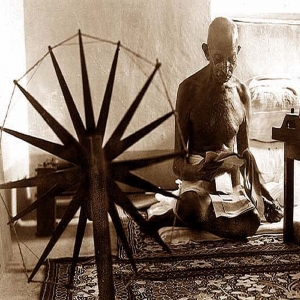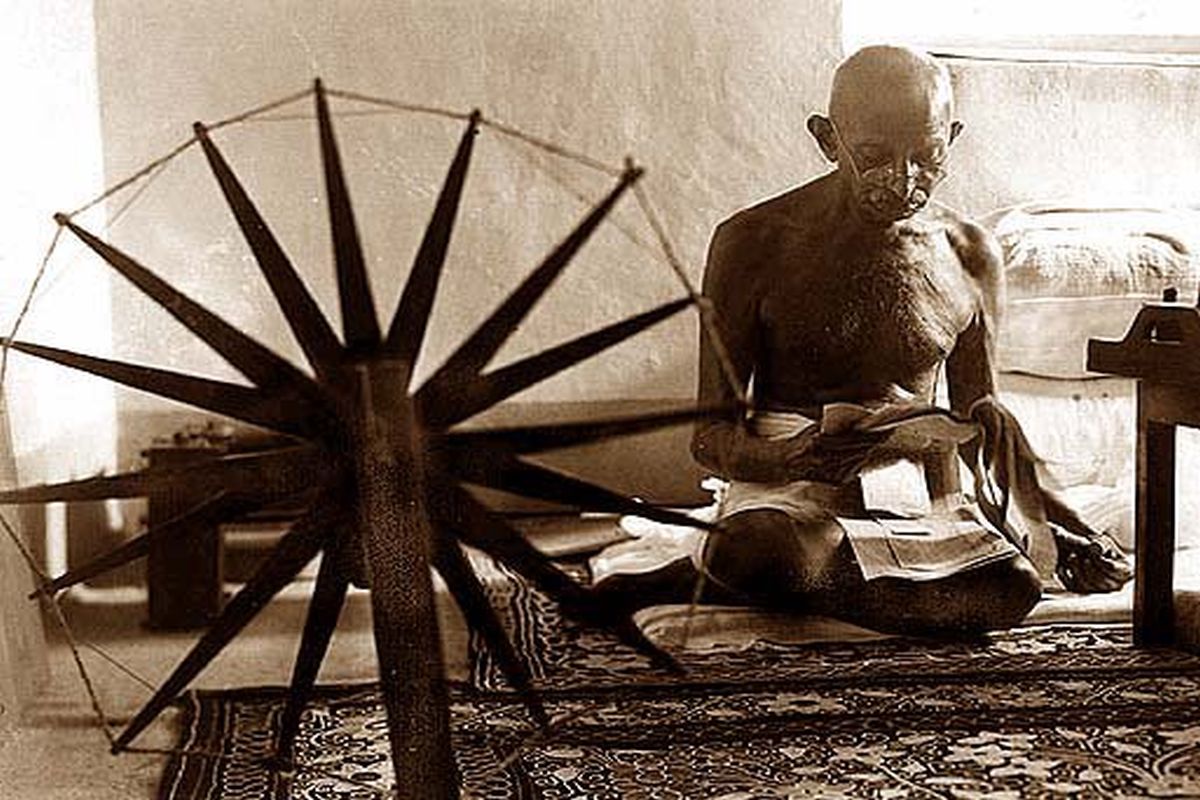

What do you suppose Ronald Reagan, Mahatma Gandhi, Nelson Mandela and many others had in common? It was a burning desire for liberty and a healthy respect for what it takes to be free.
"The anchor in our world today is freedom holding us still in times of change, a symbol of hope to all the world." (George Bush)
Of our two National holidays, we celebrate August 15 with greater fervour, both for what we celebrate and for what we achieved, I guess. We are gung-ho about marching in parades, quick to mouth the fiery speeches of our freedom fighters, sing patriotic songs, and even go to the extent of wearing our liberty on the heart or on our sleeves by pinning the Tricolour. At the same time, we might be guilty of misconstruing just how difficult it must have really been to gain this invaluable freedom 78 years ago.
To Gandhi, Swaraj did not mean replacing British rule with Indian rule. Political independence was not an end in itself. Swaraj was, above all, about individual autonomy, involving self-respect, self-restraint and maturity. Gandhi appealed for individual Indians to free themselves mentally from internal and external colonisation, through character development. "True Ahimsa should mean complete freedom from ill will, anger and hate and an overwhelming love for all."
Gandhi firmly believed that true freedom is not merely freedom to do what one desires but also the ability to ensure that what one chooses is a result of a sense of duty and which arises out of self-knowledge. Outward independence is actually a yardstick to measure the freedom of self within. Here is a salute to all those leaders who, along with Gandhi, forged ahead to achieve a seemingly impossible dream.
It is said that exceptional leaders have a way of life, a manner of doing things. To dream big, to attempt to shoot for the stars, to try the impossible, and latch onto challenges is their forte. The journey of our heroes was not smooth sailing; rather, it was an arduous ride with lots of checks and balances, all of which contributed to making them Leaders we look up to even today.
I'd like to think that there must have been days when the task at hand seemed too daunting, and they were tempted to just chuck it all away. Then they probably looked around and saw, to their chagrin, the hopeful, expectant faces of their exploited countrymen and clarity about their goal must have come through in those minuscule moments, which probably made them feel, 'It's all worth it.'
The vital lesson to learn here is that we are all adaptable. We make mistakes, but we can, with hard work and inspiration, bounce back from anything. Their journey teaches us that we need to trust, believe, guide, motivate and respect one another to get the best results towards a common expectation.
We see 'Perseverance' at its best on this journey, where each day was, in all likelihood, a new learning experience, one which they confidently faced and accepted, with not just the challenges life threw at them but also the tough turns and bends that came along. These are what helped them to mould and alter their lifestyles according to the needs of the hour.
I'm sure they realised along the way that small setbacks didn't matter, as long as they were thinking big, because that meant that they were focused on the target to be achieved, rather than swaying to the Piper's tune irrespective of how soothing it seemed. Challenges such as pressure to achieve, managing the massive manpower at their service, conveying their ideas, and implementing them only made them come out stronger, I'm convinced.
Some simple mantras I picked up from their journey are: a) Always put your best foot forward in anything you undertake. b) Do not wait to impress anyone or gain anyone's attention. Believe in yourself, stay focused, and success will automatically follow. c) Passion is necessary to do the impossible because then it becomes easier to transcend stereotypes and take the journey to an altogether different level, all the while keeping the larger picture in mind.
The worst way to defend our freedom is to let our leaders start taking away our freedom. Time and again, it has been pointed out by individuals who think critically that more freedom of speech, a strong and critical press, and a citizenry that is not afraid to stand up and point out wrongs are the need of the hour, for the world's largest democracy.
Ignorance may be bliss, but it certainly is not freedom, except in the minds of those who prefer to be called people of darkness rather than of light. Being a bench sitter and offering no opinion suggests persons who prefer chains to liberty.
"Blind belief in authority is the greatest enemy." (Albert Einstein)
Each one needs to think for themselves and let others enjoy the privilege of doing so too. Freedom should allow a person not just to close an argument but to open the mind, to be blunt, to be a prophetic voice in the wilderness. Freedom is the right to question and change the established way of doing things. True freedom is tolerant. It gives people the right to live and think in new ways.
Freedom means many things to many people. True freedom is actually the power to change. We read about freedom, dream about it, rejoice in its notion, teach, advocate and hope tirelessly for it. But what does true freedom mean? Is it seen in being able to buy anything I want or in thinking that I don't owe anyone an explanation for what I say and do? It is critical to define for ourselves what we mean by freedom so that we know what we're looking for, what we're hoping to attain.
Most speeches given on the August 15 will in all likelihood start by eulogising the men and women of decades past, will move onto highlighting the achievements that have pioneered the country into the 21st Century and will in all probability end with a lament on the many evils confronting us in society, forcing the curious question: Are we really, truly free citizens of an enlightened society?
But who makes the society? Isn't it you and me? So, if we want to make it a better place, we need to change ourselves first. Let us not become a society of hypocrites that hides behind a façade of moral hypocrisy; rather, let us aim to become one that backs truth and harmony.